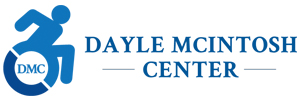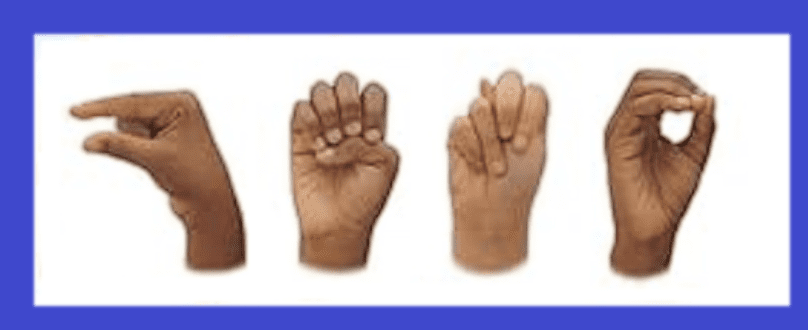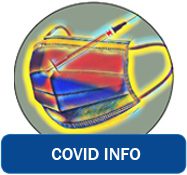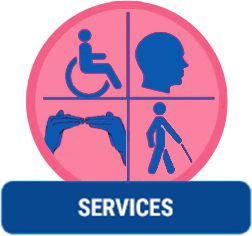Watch how to sign ‘vice president’ in American Sign Language
GENO M. VESCOVI, Ph.D. (1930-2013) – DMC Original Vice-President
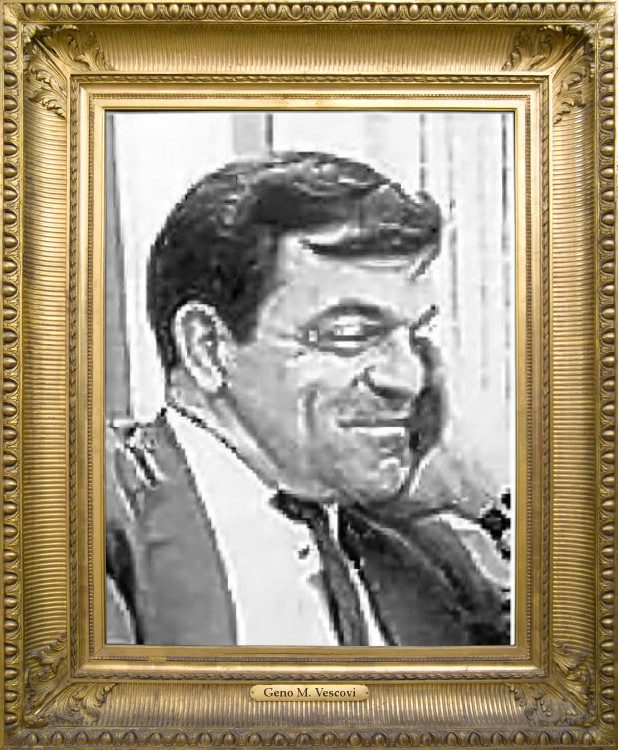 On September 18, 1930, Geno M. Vescovi was born in Albuquerque, New Mexico. He was born hearing, but by the time he reached his early years as a teenager, lost his hearing due to Spinal Meningitis. Knowing both deaf and hearing worlds gave Vescovi a unique perspective to build a bridge between the two, taking on a human rights battle for education and employment, leading by example. This would lead him to what he was destined to do in showing what was possible to achieve in education, creating a historic United States milestone. His passion for access grew with his fight in overcoming his life challenges and obstacles to develop a career to be part of the solution through his acquired disability.
On September 18, 1930, Geno M. Vescovi was born in Albuquerque, New Mexico. He was born hearing, but by the time he reached his early years as a teenager, lost his hearing due to Spinal Meningitis. Knowing both deaf and hearing worlds gave Vescovi a unique perspective to build a bridge between the two, taking on a human rights battle for education and employment, leading by example. This would lead him to what he was destined to do in showing what was possible to achieve in education, creating a historic United States milestone. His passion for access grew with his fight in overcoming his life challenges and obstacles to develop a career to be part of the solution through his acquired disability.
An insatiable curiosity led him to constantly pose questions, pen letters, and delve into the intricacies of the ‘Why.’ His inquisitive nature extended to understanding the nuances of employment conditions and the labor force. In the year 1962, he took a proactive step by composing a letter, addressing the perspective on the employment of deaf individuals at the Ford plant.
Photo credit: Genealogy Library – City of Albuquerque
https://gaislandora.wrlc.org/islandora/object/benjaminschowe%3A750
Vescovi attended Gallaudet University, the world’s only liberal arts college for the deaf. Getting his education at a ground-breaking college was just the beginning of many firsts. After he graduated, he made history for Gallaudet University, and the University of Arizona all in one swoop, when it was announced in 1968 he would be one of four students to be the first deaf individuals ever to receive funding to pursue doctorates through a federal grant. He didn’t know this at the time, but the very grant program which began in 1966 was designed to help the deaf adjust to a silent world, a service model of aid being presented by, and for people with disabilities – which would surface again in his life in an unexpected way. The University of Arizona’s own College of Education Rehabilitation Center consists of trainees who are also deaf.
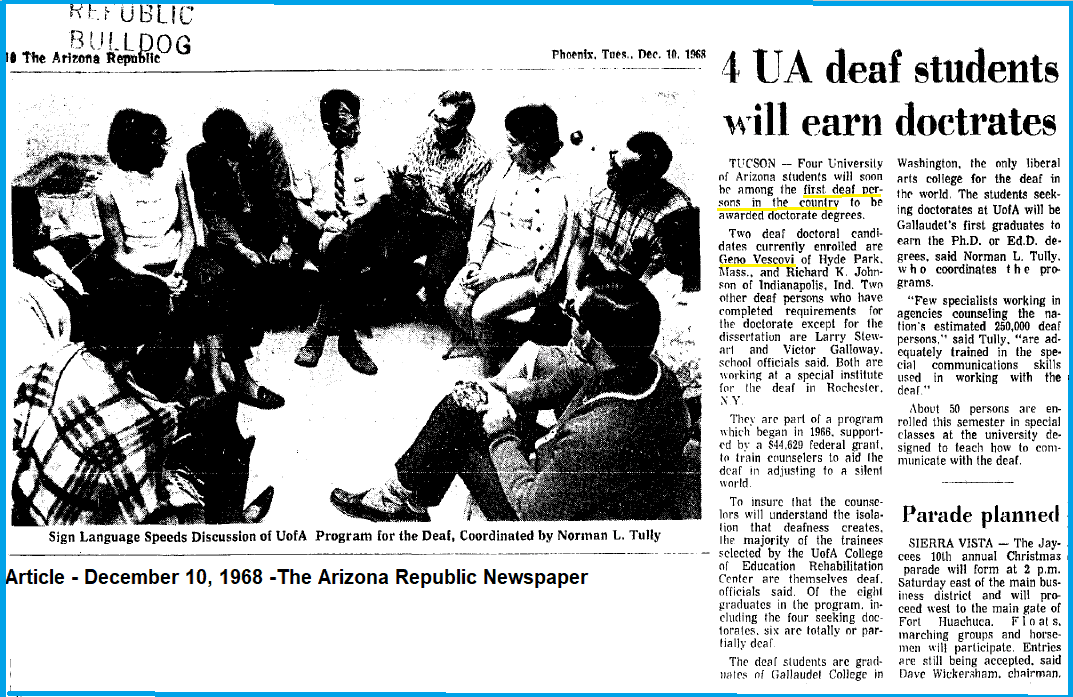
In 1967, he would put his deaf experience from pen to paper as a writing contributor to a published book, entitled Deaf Adults in New England, an exploratory service program, by Clifford Allen Lawrence.
In 1969, Vescovi’s strong sense of purpose was reinforced when he was responsible for managing his trajectory, purpose and progress. While he was not the first deaf person to graduate with a doctorate in the country, he was in the top 3 in the United States when he graduated in the summer of 1970 at age forty with a Doctorate in Philosophy.
Always actively writing, Vescovi didn’t allow inactivity to occur. In 1974, he would pen two publications bearing his name as an author, Future Considerations in the Delivery of Services to Severely Handicapped Deaf Persons, and Individual Counseling of the Severely Handicapped Deaf Person.
Throughout Vescovi’s lifetime he would always have pen-in-hand from his earliest thesis to numerous contributions to the world’s catalogs: The Motivation to Work In Deaf Teachers of The Deaf; The Emerging Private Psychologist Practitioner Contributor to Vocational Rehabilitation Process of Deaf Clients; Limiting Factors in Personality Development in Deaf Children; Deaf Adults in New England: An Exploratory Service Program; Counseling with Deaf People; Factors Related to Successful Employment of Deaf Workers and many more. He didn’t know this at the time, but all of this work would become valuable in helping to develop the Deaf Services Program at the Dayle McIntosh Center. His time in his career pursuits resulted in valuable contributions to the educational community as a professor and as a counselor for the deaf. He wrote numerous papers exploring both sides of teaching and counseling from the deaf peer-to-peer perspective as well as sharing valuable insights on the importance of education.
As Coordinator of Services for the Deaf with the Massachusetts Division of Vocational Rehabilitation, Vescovi continued to contribute to publications, with his insights personally and professionally wherever it would be useful. His early work and research became both inspirational and muse-like as well as insightful to the creation of other works, like in New York University School of Education’s Counseling with Deaf People for The Deafness Research and Training Center.
https://files.eric.ed.gov/fulltext/ED058689.pdf
Here is a video documentary piece on Vescovi. It was produced, and approved for embedding here on the DMC site by Southern Methodist University (SMU) and KERA during his time teaching at Eastfield College (now known as Dallas College, Eastfield Campus).
Vescovi made his way to the State of California as an educator and Deaf Counselor. In 1976, he worked as a psychologist with both Orange County and Riverside Mental Health Departments, then simultaneously landing at Golden West College in Huntington Beach California, juggling all three areas of service. He is celebrated for his meritorious service. He was passionate about communications and spent many hours writing all kinds of papers on the subject. It was here, he worked alongside Professor Paul M. Culton. In 1977, both colleagues would become one of the Founding Board Officers of the Dayle McIntosh Center, responsible for the development of the non-profit’s Deaf Services arm of the organization.
He continued serving in the community as a leader, professor/educator, Deaf Professor and continued his counseling. He passed away on October 23, 2013 returning full-circle to his hometown of Albuquerque, New Mexico where his life, family, and historic leadership legacy were celebrated.
His children paid final respects to him with one of Vescovi’s favorite quotes: “It is not the critic who counts; not the man who points out how the strong man stumbles, or where the doer of deeds could have done them better. The credit belongs to the man who is actually in the arena, whose face is marred by dust and sweat and blood, who strives valiantly, who errs, who comes short again, because there is no effort without error and shortcomings; but who does actually strive to do the deeds, who knows great enthusiasms, the great devotions, who spends himself in a worthy cause, who at the best knows in the end the triumph of high achievements, and who at the worst, if he fails at least fails while daring greatly.”
